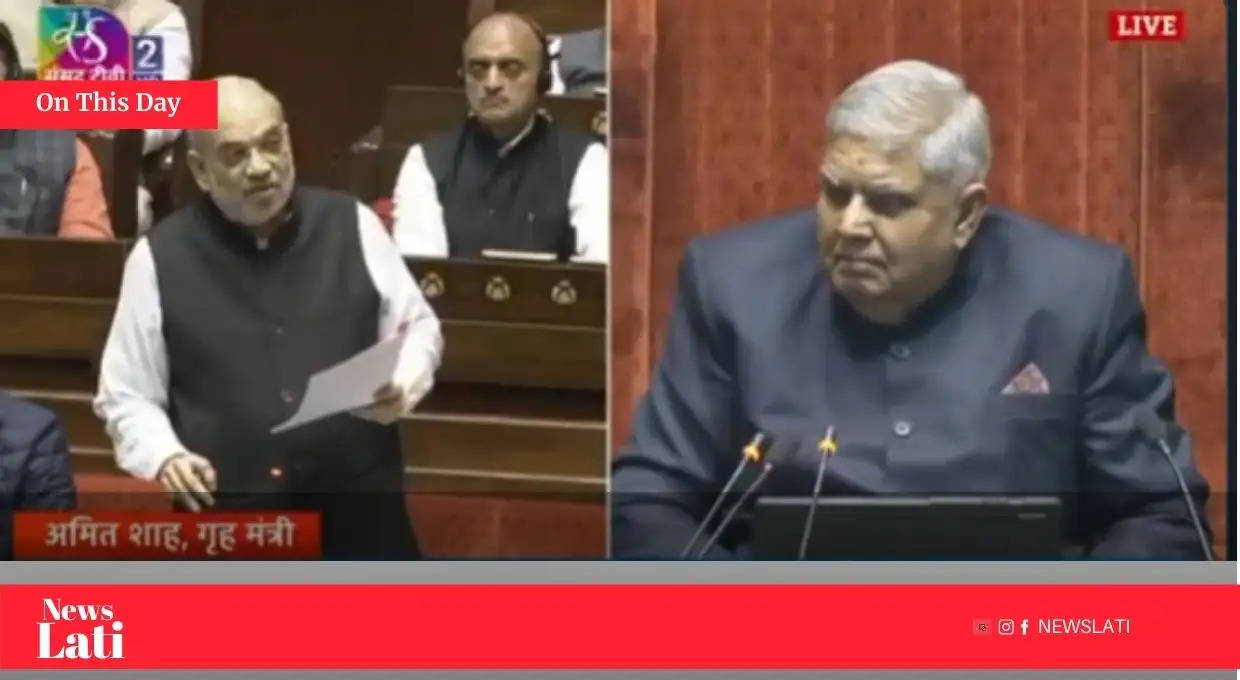Amit Shah's Controversial Remarks on Ambedkar Spark Outrage; Apology Demanded

-
Amit Shah criticizes the frequent mention of Ambedkar's name as a "fashion."
-
His statement comparing Ambedkar's name to God's name triggers accusations of disrespect.
-
Opposition and Ambedkar supporters demand an apology from Shah for his comments.
-
Criticism highlights BJP and RSS's alleged historical opposition to Ambedkar's principles.
In a session that has stirred significant political controversy, Union Home Minister Amit Shah made remarks in Parliament that have led to widespread criticism and demands for an apology. Addressing the house, Shah commented on the political usage of Dr. B.R. Ambedkar's name, stating, "This has become a fashion now - Ambedkar, Ambedkar, Ambedkar... If you called God's name so many times, you would go to heaven." This statement has been perceived as derogatory towards Babasaheb Ambedkar, the architect of the Indian Constitution and a revered figure among Dalits and marginalized communities.
The reaction was swift and intense. The opposition, especially Congress, along with numerous Ambedkarite followers, condemned Shah's comments, viewing them as an insult to the legacy of Ambedkar. Critics argue that such remarks reveal a deep-seated animosity by the BJP and its ideological parent, the RSS, towards Ambedkar and the values he stood for. Social media platforms were flooded with posts expressing anger and calling for Shah to apologize in the house for his statements.
“अभी यह फैशन चल गया है अंबेडकर अंबेडकर अंबेडकर नाम लेने का
— Supriya Shrinate (@SupriyaShrinate) December 17, 2024
इतना नाम अगर भगवान का लेते तो स्वर्ग मिल जाता” : अमित शाह
बाबा साहेब का यह अपमान सिर्फ़ और सिर्फ़ वो आदमी कर सकता है जिसको उनके संविधान से चिढ़ है
और जिसके पुरखों ने शोषितों वंचितों के मसीहा बाबासाहेब के पुतले जलाये… pic.twitter.com/1CLVEJDtRi
The critique extends beyond the immediate political arena, touching on historical grievances where Ambedkar was opposed by conservative forces, including those aligned with the RSS ideology. Critics recall the times when Ambedkar's effigies were burned by right-wing groups, suggesting a long-standing conflict between Ambedkar's vision of social justice and the political ideologies of the BJP and RSS.
Shah's comments have reignited discussions about the respect and reverence due to Ambedkar, particularly from those in positions of power who are expected to uphold the Constitution he helped draft. There's a strong sentiment among Ambedkar's supporters that Shah's remarks were not just a political faux pas but a reflection of a broader disdain for Ambedkar's contributions to Indian society.
This incident has not only underscored the political divide but also highlighted the ongoing battle over the interpretation and respect for Ambedkar's legacy. As demands for an apology grow louder, the political discourse in India has once again shifted towards the contentious issues of caste, identity, and the true guardianship of Ambedkar's constitutional vision. Whether Shah will offer an apology remains to be seen, but the episode has certainly set the stage for further debate on how Ambedkar's principles are to be honored in contemporary Indian politics.
